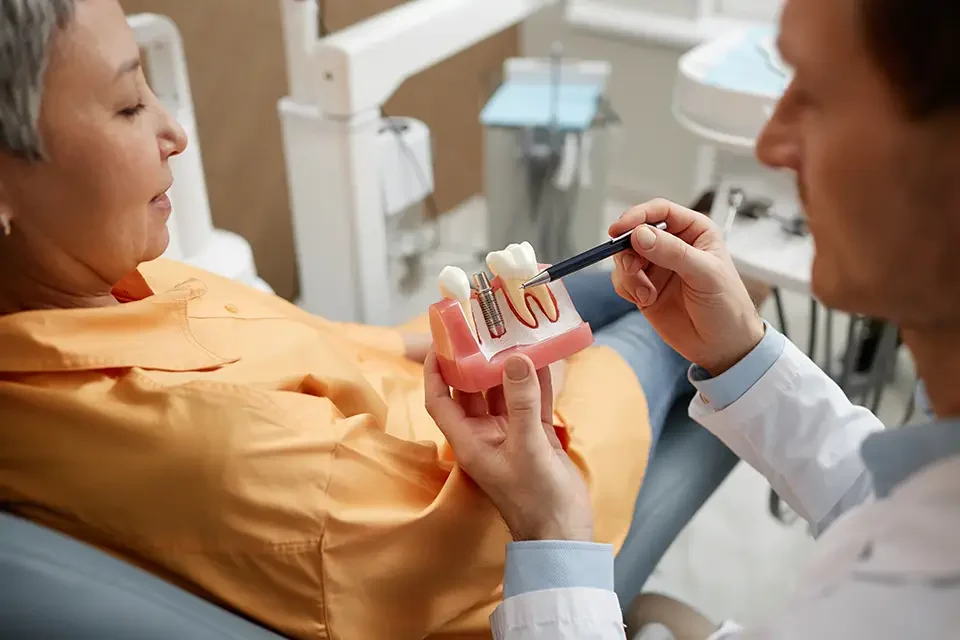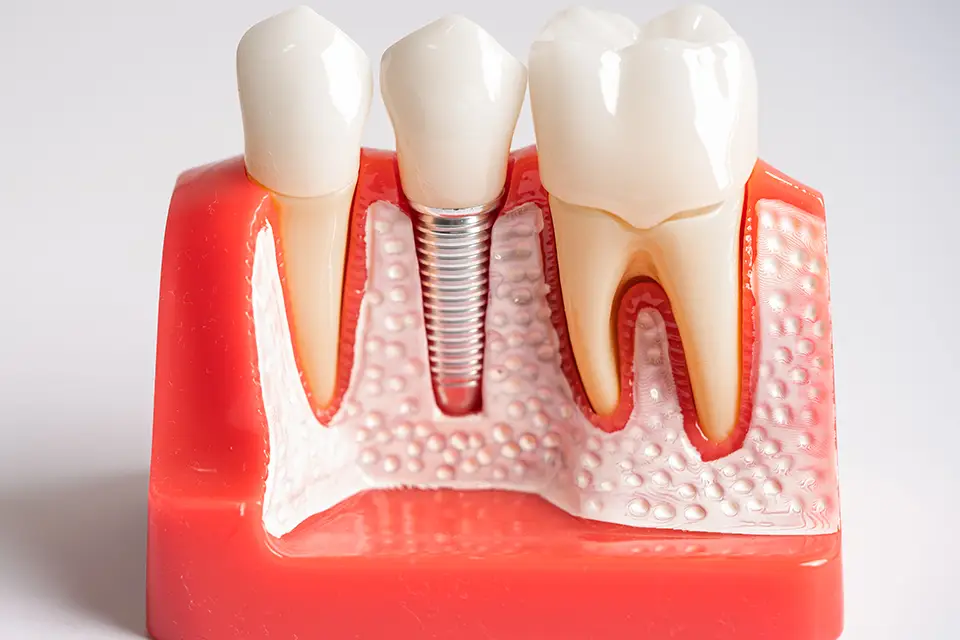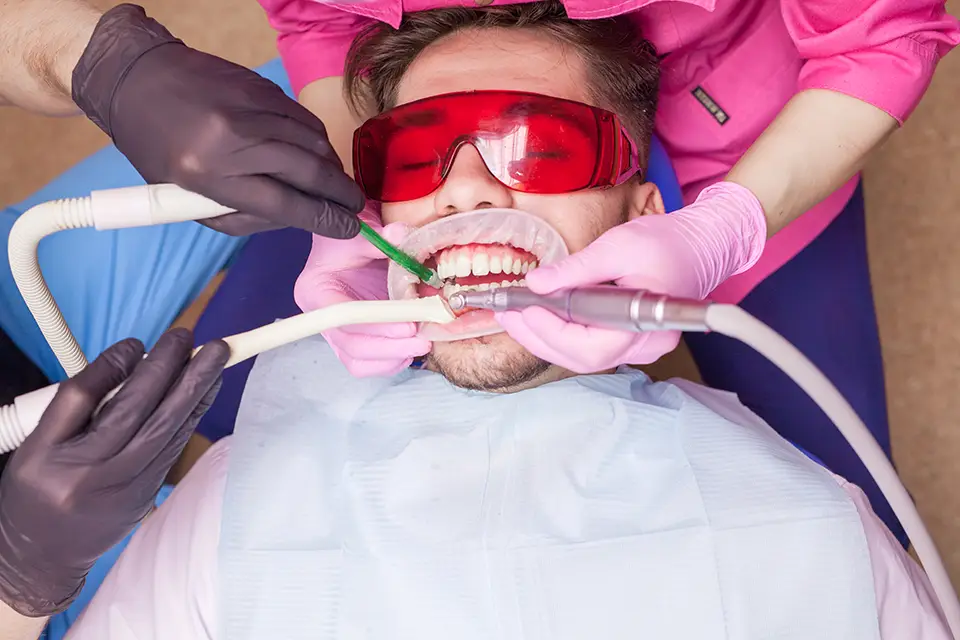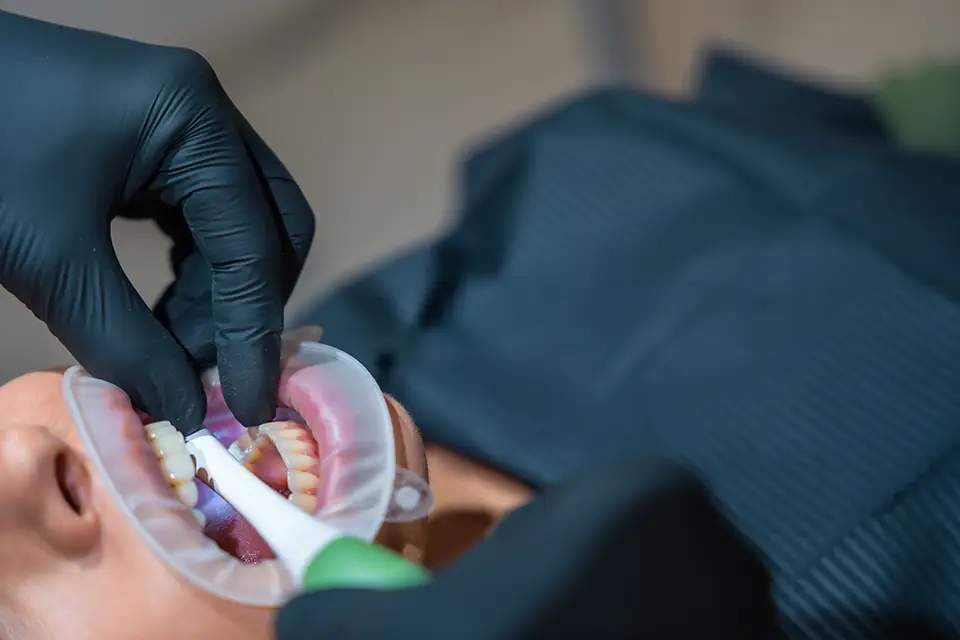It’s usually the first question on people’s minds: Do dental implants hurt? The short, honest answer—during surgery, you should feel pressure, not sharp pain; afterward, most people report mild to moderate soreness that fades over a few days with routine care. At Sunshine Dentistry in Richmond Hill, Ontario, we plan the entire experience around comfort: thoughtful anesthesia, gentle technique, clear instructions, and quick follow-ups if you need us. Below, we break down do dental implants hurt? At each stage—from the chair to the first 72 hours to the quiet healing weeks—so you know what’s normal, what helps, and when to call.
Do Dental Implants Hurt? During the Procedure
Your dental professional fully numbs the area so that the pain nerves are blocked. If you’re anxious or your case is complex, sedation (nitrous, oral, or IV) can be added after a health review. You may notice vibration and pressure while the implant is placed, but not sharp pain. We keep you informed as we go—what you might feel, how long the step takes, and what’s next—so time passes more calmly.
Do Dental Implants Hurt? The First 72 Hours
Think of the first three days as a simple arc: a little oozing on day one, swelling peaking around 48–72 hours, and soreness that begins to settle after that. Ice packs (short intervals) help on day one; many patients switch to warm compresses after two days. Keep your head slightly elevated for sleep and take your first pain dose before the numbness fully wears off. If discomfort or swelling worsens instead of improving after day three, that’s your cue to get in touch.
A realistic day-by-day:
- Hours 0–24: Rest, gauze as directed, first pain dose on schedule, liquids, and soft foods.
- Days 2–3: Peak swelling and stiffness—normal physiology, not a setback. Gentle jaw-opening stretches if advised.
- Days 4–7: Swelling and soreness taper; stitches relax or are removed; diet widens to “fork-tender” foods.

How Does Implant Soreness Compare with an Extraction?
Patients who’ve had both often describe post-implant discomfort as milder and shorter-lived than a surgical extraction. Once the first few days are behind you, most routines—work, light errands, and normal conversations—feel close to normal.
Do Dental Implants Hurt: What Actually Works for Pain Control
Modern plans lean on non-opioid options first. For most healthy adults, NSAIDs (like ibuprofen or naproxen) alone—or paired with acetaminophen—control typical dental discomfort very well. Your dental professional will tailor dosing to your medical history and any prescriptions you already take. The key is to stay ahead of pain for the first 24–48 hours rather than “chasing” it.
Comfort checklist (first 48–72 hours):
- Take the first dose before numbness fades.
- Sleep slightly elevated to curb swelling.
- Begin gentle salt-water rinses after 24 hours (if advised).
- Skip straws, smoking, and vigorous swishing—suction and irritation slow healing.
Do Dental Implants Hurt? Red Flags vs. Normal Healing
Normal: mild soreness, swelling that peaks by day three, limited jaw opening early on.
Call us promptly if you notice:
- Pain that spikes after improving or isn’t controlled by your plan
- Worsening swelling after day three or persistent bleeding
- Fever, persistent bad taste/odour, or discharge
- Prolonged numbness or the implant area feeling loose
Early checks keep small issues small.
Why Planning and Technique Matter for Comfort
Two things reduce how much you feel: forethought and finesse. Guided placement from a 3D scan shortens chair time and limits tissue trauma. Gentle handling, minimal bone removal, cool irrigation, and tidy suturing all help the site stay calmer. Add the right anesthesia and aftercare, and most recoveries are pleasantly uneventful.
Do Dental Implants Hurt? The Weeks After—Quiet Healing
By week two, most people describe a “quiet mouth.” Under the surface, bone cells are fusing to the implant (osseointegration). You might feel slight tenderness if you press the area or if a temporary crown is lightly in function, but daily life should feel normal. If you ever notice biting pain, unusual mobility, or gum irritation around the site, a quick adjustment visit typically solves it.

Practical Tips That Make a Big Difference
- Stock the kitchen: Cool, soft, protein-forward options—yogurt, eggs, mashed vegetables, flaky fish—then progress to fork-tender foods as comfort allows.
- Keep it clean: Brush the rest of your teeth as normal and use gentle rinses near the site as directed.
- Protect your work: If you clench or grind, a nightguard reduces overload during healing.
- Show up for reviews: Small bite adjustments beat big delays and keep discomfort low.
Bottom Line—and Your Next Step
So, do dental implants hurt? With the right anesthesia and careful planning, the procedure itself shouldn’t be painful; afterward, expect short-term soreness that peaks in the first three days and fades with sensible aftercare. If you want a calm, predictable plan tailored to your health and schedule, Sunshine Dentistry in Richmond Hill is here to help. We’ll review your scan, map comfort options, and send you home with a step-by-step plan so healing is measured in days—not drama.
FAQs — Do Dental Implants Hurt?
Do dental implants hurt during the appointment?
With modern local anesthesia (and sedation if chosen), you should feel pressure and vibration—not sharp pain. If anything feels off, your dental professional adjusts before moving on.
How long will I be sore after an implant?
Most people feel sore for two to three days, with swelling peaking at 48–72 hours and improving steadily after that. Many return to desk work within a day or two.
What's the best pain medication after implants?
For most healthy adults, NSAIDs (like ibuprofen) with or without acetaminophen are the first line. Your plan is customized to your health history.
Can I exercise after surgery?
Keep it light for a few days. Heavy lifting and high-intensity workouts raise blood pressure and can restart bleeding—give yourself a brief window to heal.



